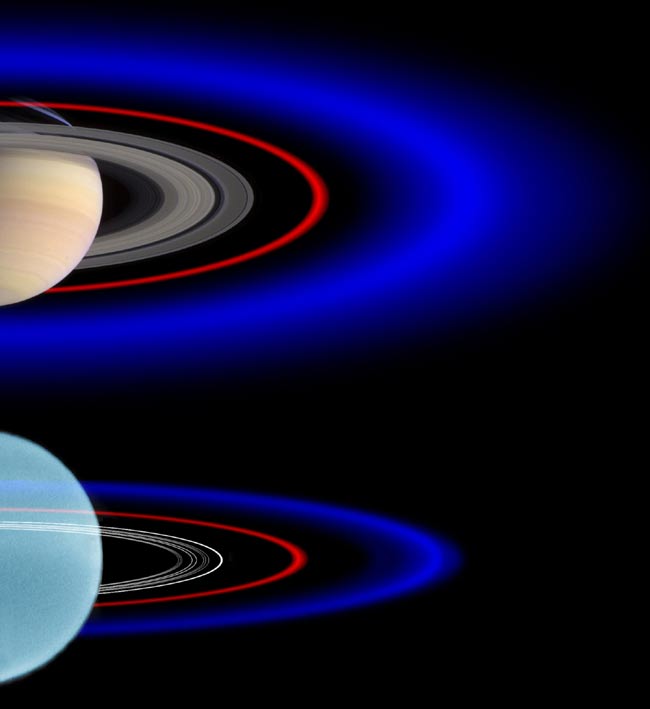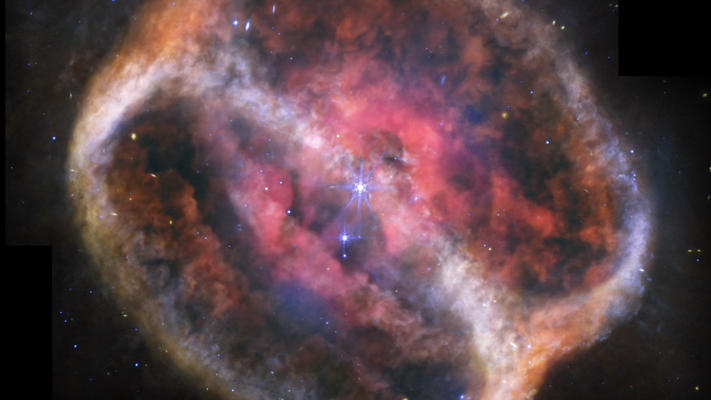Planet Uranus Has Rare Blue Ring

The recently discovered outermost ring of gas giant Uranus is a bright blue, scientists said today.
Saturn is the only other planet with an identified blue outer ring in the solar system. Both blue rings are associated with small moons; Saturn with Enceladus and Uranus with Mab.
"The outer ring of Saturn is blue and has Enceladus right smack at its brightest spot, and Uranus is strikingly similar, with its blue ring right on top of Mab's orbit," said Imke de Pater, professor of astronomy at the University of California, Berkeley.
All other rings, such as the those around Jupiter, Saturn, Uranus, and Neptune, sport a reddish color because they are composed of larger particles that reflect red light. The particles themselves may also be reddish, possibly from iron.
The color of Saturn's blue ring has been credited to the tiny particles spewed into space by Enceladus as it orbits around the planet. But the same probably isn't true for Uranus, scientists say.
Uranus' newly discovered moon, Mab, is a small, dead, rocky ball only about 15 miles across-one-twentieth the diameter of Enceladus.
The scientists however suspect that both of these rings are subject to forces acting on dust in the rings, which allow the tiny particles to survive while the larger ones are captured by their moons.
Get the Space.com Newsletter
Breaking space news, the latest updates on rocket launches, skywatching events and more!
These fragments are subject to forces that push them away or toward the planet out of the moon's orbit. The result is a ring of small particles, each only a fraction of a human hair in width, that reflect and scatter mostly blue light.
"This model can be transferred directly to what we now see in Uranus," de Pater said. "Although we still need to understand the details of the process."
The study is detailed in the April 7 issue of the journal Science.
Join our Space Forums to keep talking space on the latest missions, night sky and more! And if you have a news tip, correction or comment, let us know at: community@space.com.










